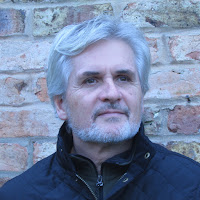I haven't blogged for some time and need to get back into the routine. I gave it some thought about how to go about this. I decided to concentrate on 'writing' topics for a while, going through the alphabet, with guests giving their views and ideas.
This first post is A is for adjectives and I'm delighted to have Paula Martin on board to talk about this. As well as being an excellent author, Paula is particularly keen on the correct use grammar and punctuation.
When I was at school (a long time ago!), my English teachers insisted we used lots of adjectives to make our writing more descriptive. In contrast, writers are warned against the overuse of adjectives.
Various reasons are given for this: too many adjectives give your novel a ‘purple prose’ tint, or clutter the text with unnecessary modifiers, or give the impression that the writer cannot quite find the right word.
When I was at school (a long time ago!), my English teachers insisted we used lots of adjectives to make our writing more descriptive. In contrast, writers are warned against the overuse of adjectives.
Various reasons are given for this: too many adjectives give your novel a ‘purple prose’ tint, or clutter the text with unnecessary modifiers, or give the impression that the writer cannot quite find the right word.
Mark Twain said: "As to the adjective, when in doubt, strike it out."
The question is – which adjectives should you strike out?
First there are the redundant adjectives – the tiny kitten (aren’t all kittens tiny?), the large mountain (ever seen a small mountain?), the narrow alley (an alley IS a narrow passage), the cold snow (if snow wasn’t cold, it would be water!). Omit the adjective if the noun is self-explanatory.
Secondly, there are the adjectives which, with their nouns, can be replaced with a much more descriptive word e.g. ‘a downpour flooded the streets’ instead of ‘heavy rain flooded the streets’, or ‘the witch cackled’ instead of ‘the witch gave an evil, sharp laugh’.
There are also some adjectives which have become almost meaningless and should be avoided (except in dialogue), including wonderful, lovely, pretty, stupid, foolish, pleasant, comely, horrid – and the obvious one, nice.
However, a story without any adjectives could end up as very clinical and dry. As with most things, moderation is the key. We are not advised to avoid adjectives altogether, but to avoid overusing them.
Eliminating all adjectives would be as big a mistake as overusing them. Adjectives can clarify meaning and add colour to our writing, and can be used to convey the precise shade of meaning we want to achieve. We should save them for the moments when we really need them and then use them selectively – and sparsely. Too often we feel the need to beef up our nouns in an effort to get our point across.
Compare: The dark, dreary house had an empty, suspicious feel to it, the thick air stale and sour with undefined, scary kitchen odors. Are all these adjectives necessary?
A tighter, more dramatic description would be: The house had an empty feeling to it, the air stale with undefined kitchen odors.
Use adjectives only to highlight something the noun can’t highlight. We’ve already seen that the ‘narrow alley’ has a redundant adjective, but what about the ‘dark alley’ or the ‘filthy alley’? Not all alleys are dark or filthy so in these examples, the adjectives are adding something that is not already shown by the noun. This is the main reason for using an adjective.
And now I’m off to take my own advice, and look through my ms. for redundant adjectives!

http://www.tirgearrpublishing.com/authors/Martin_Paula/index.htm
https://paulamartinromances.webs.com/
https://www.facebook.com/paulamartinromances



